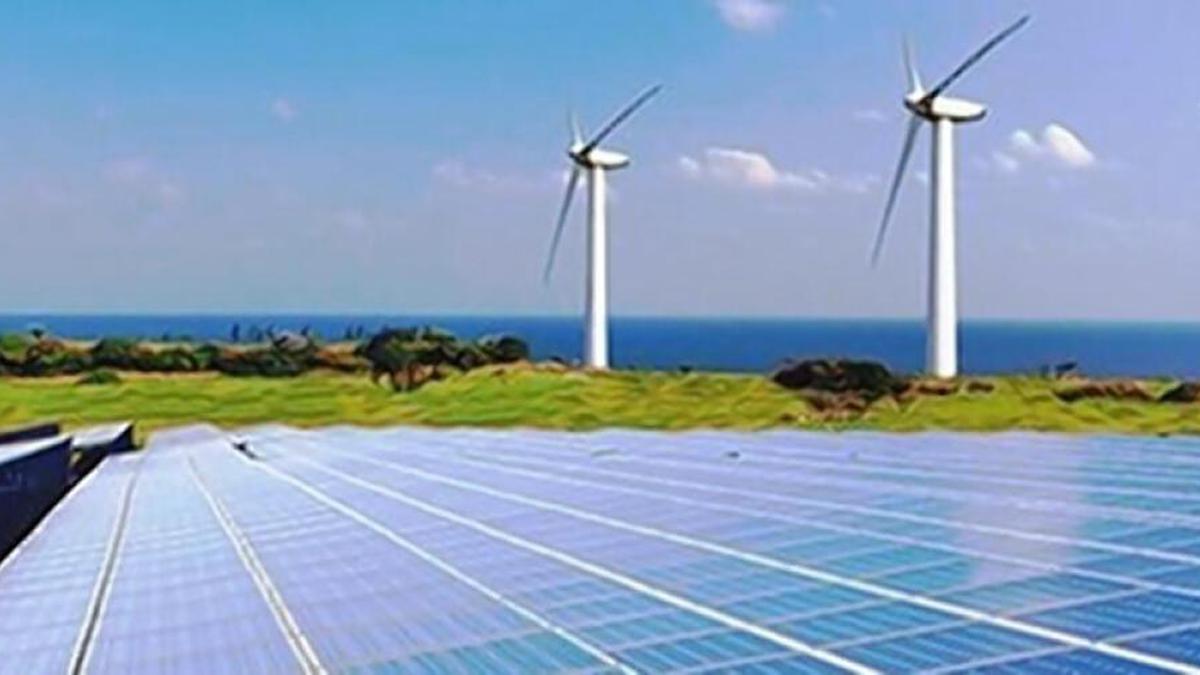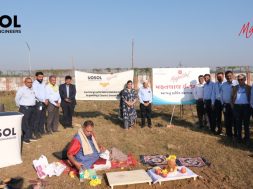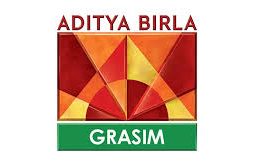
Billionaire Cannon-Brookes acquires Sun Cable renewables project – EQ Mag
Entrepreneur says plan to send renewable energy to Singapore from Northern Territory a ‘nation-building project for Australia’
Mike Cannon-Brookes has prevailed over Andrew Forrest in a billionaires’ battle for control of Sun Cable, an ambitious development promising to transmit solar-generated electricity from the Northern Territory outback to Singapore.
Cannon-Brookes and Forrest had been involved in a bidding process for the $30bn-plus project after they fell out over its future direction and the company, also called Sun Cable, went into voluntary administration.
The administrators, FTI Consulting, announced on Friday that a consortium led by Cannon-Brookes’ Grok Ventures and including Quinbrook Infrastructure Partners had been successful in acquiring the company’s assets. Forrest’s Squadron Energy said it did not submit a final binding bid.
In a statement, the Grok-led consortium said it believed the Sun Cable project “had the potential to be a nation-building project for Australia”. It said it would “deep dive with management over the coming weeks” before saying more about the project’s design and development.
“We believe Sun Cable can achieve long-term success by delivering globally competitive electrons to Australia and the world,” the consortium said. “We will continue to pursue customer off-take agreements in Singapore and Darwin, and collaborate with the Singaporean and Northern Territory governments to achieve this mission.”
Described by the company as “the world’s largest solar infrastructure network”, the Sun Cable proposal has included building a 20-gigawatt solar farm and between 36 and 42 gigawatt-hours of battery storage capacity at the Newcastle Waters cattle station about 750km south of Darwin. It would help power Darwin and connect to Singapore via a 4,200km underwater cable and also provide electricity to Indonesia.
Cannon-Brookes, who runs Grok Ventures as a private investment firm with his wife, Annie, and made his fortune as a founder of the tech company Atlassian, said the announcement was “a big step in the right direction”.
“We’ve always believed in the possibilities Sun Cable presents in exporting our boundless sunshine and what it could mean for Australia,” he said. “It’s time to stretch our country’s ambition. We need to take big swings if we are going to be a renewable energy superpower. So swing we will.”
The project went into administration in January after the billionaires disagreed over whether to continue with the Singapore cable part of the development, known as Australia-Asia Powerlink. Forrest’s Squadron Energy no longer supported the cable due to concerns about its economic viability and opposed a plan for further equity raising. Grok later made a successful proposal to provide Sun Cable with $65m in interim funding while ownership was resolved.
Forrest said while he did not participate in the final stage of the bidding process, he was delighted that other investors including Grok were “playing a role in tackling global warming, by replacing fossil fuel investment with green energy projects”.
He said continuing with Sun Cable “did not align with Squadron’s strategic goals” as his company was “already working to deliver 30% of the renewable energy required to meet the federal government’s target of 82% renewables by 2030”.
“We have decided to focus on the existing 20GW pipeline of assets as a much faster way to achieve those goals and take Australia closer to a carbon-free future,” he said.
“We remain unconvinced of the commercial viability of the Australia-Asia Powerlink but if others believe it can be achieved, we wish them all the best. As an interested shareholder we look forward to better understanding the details of the deal,” he said.
Quinbrook’s managing partner, David Scaysbrook, said Sun Cable promised to be “not only one of the largest renewables projects in Australia, but a project of global significance”.














